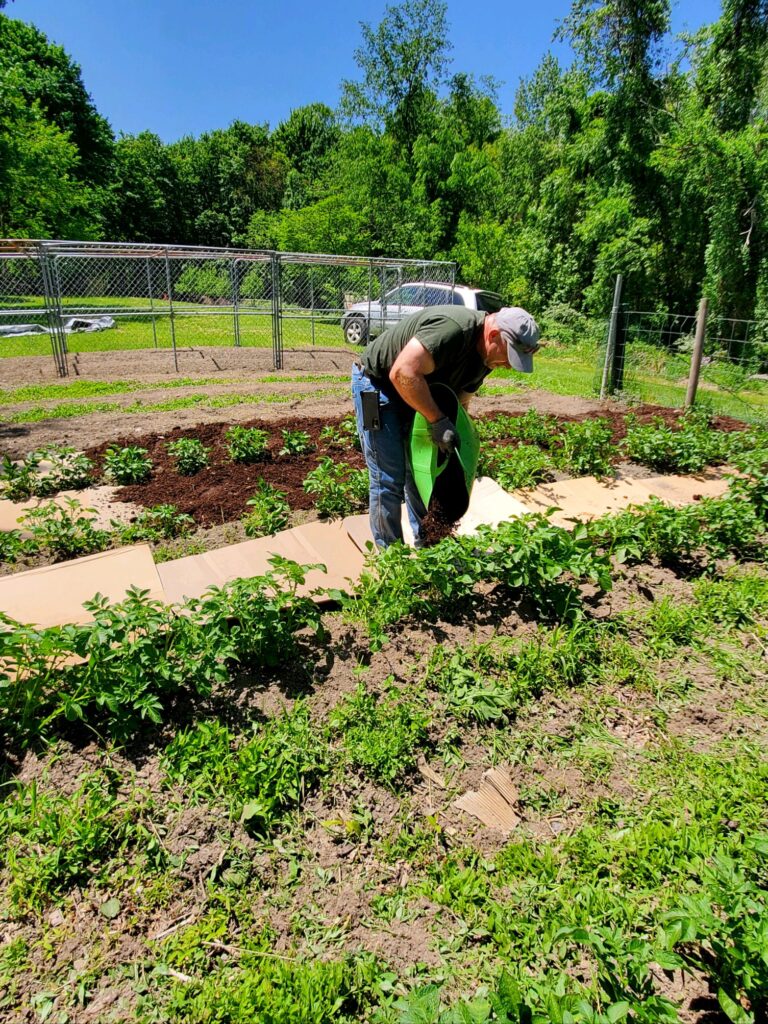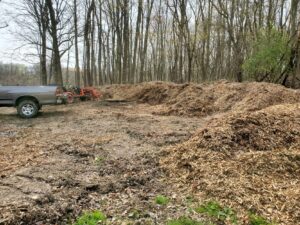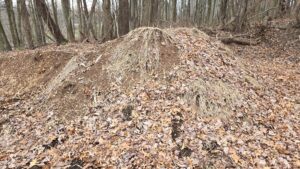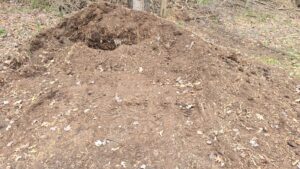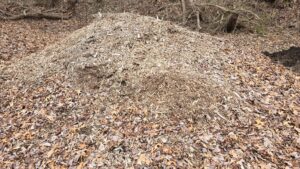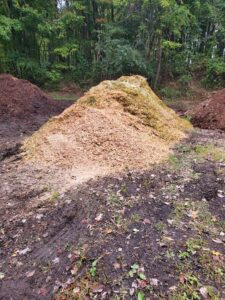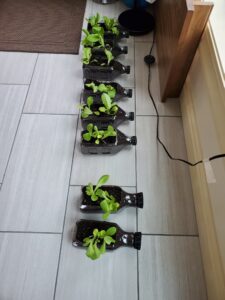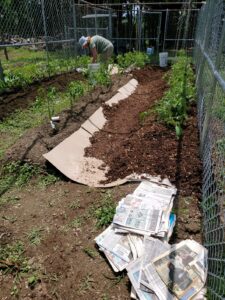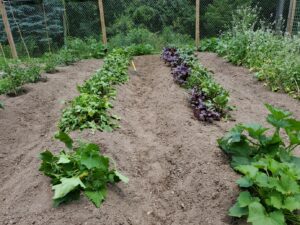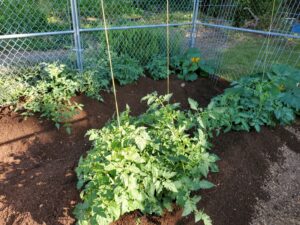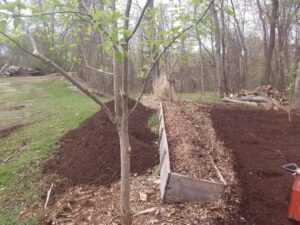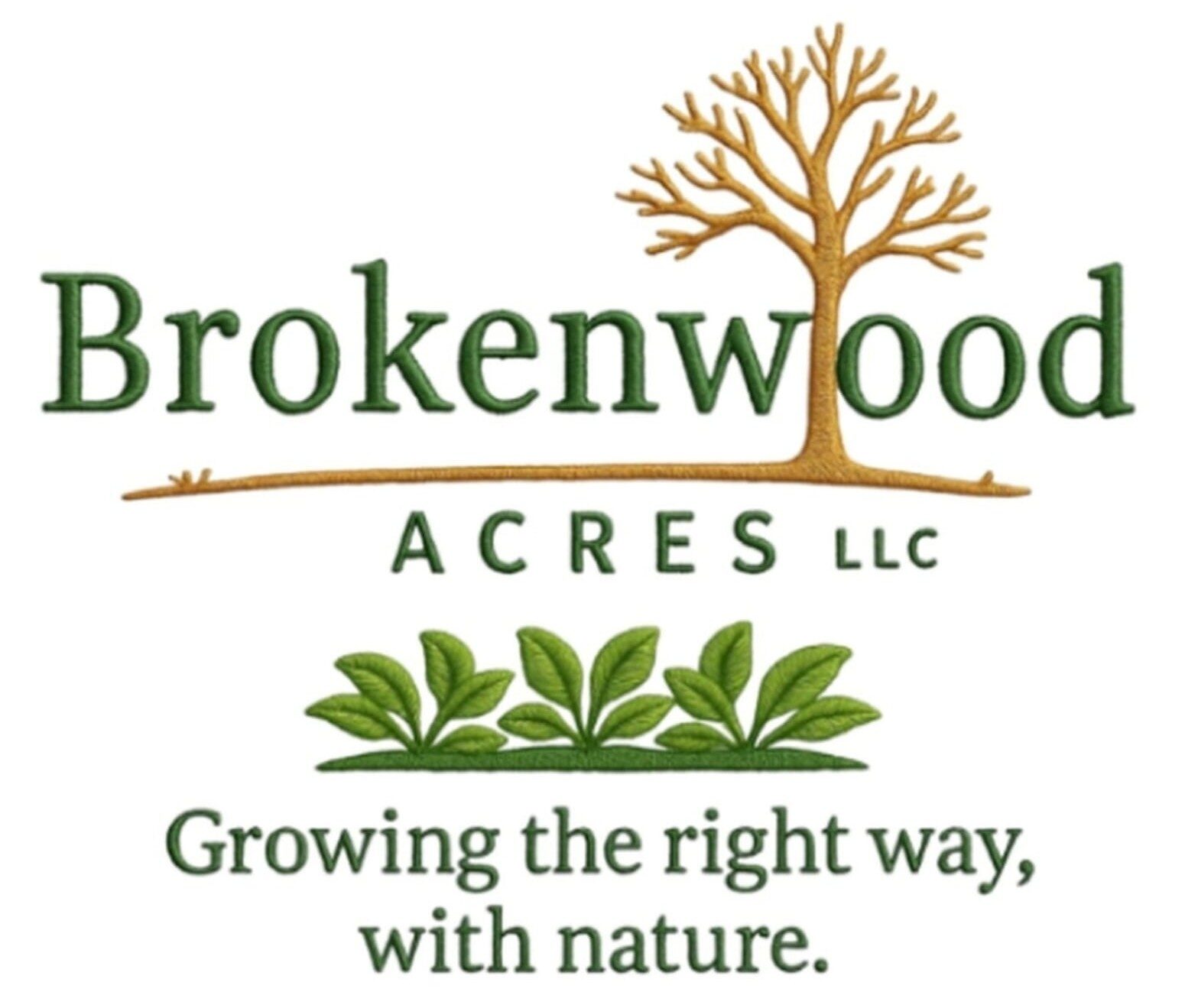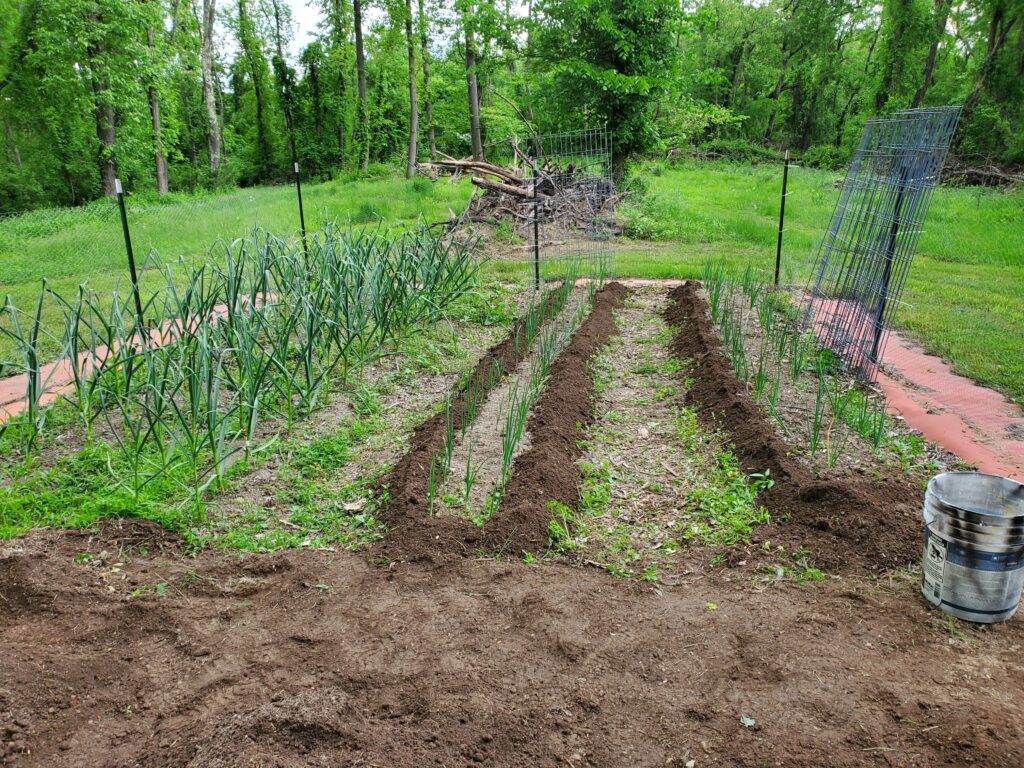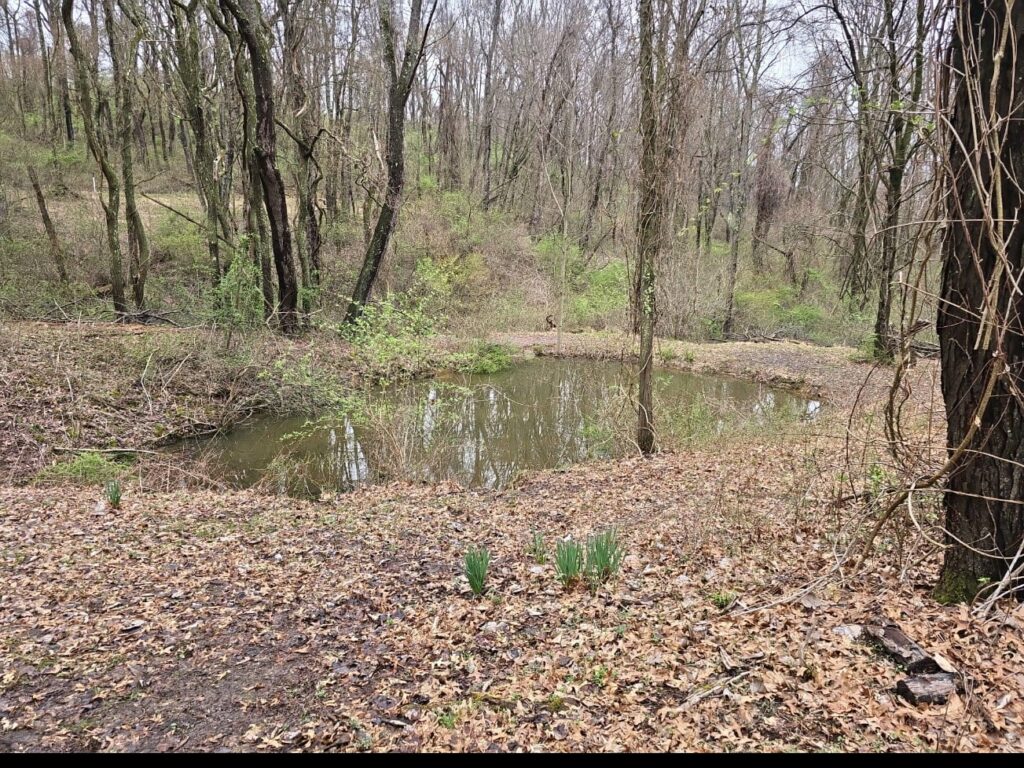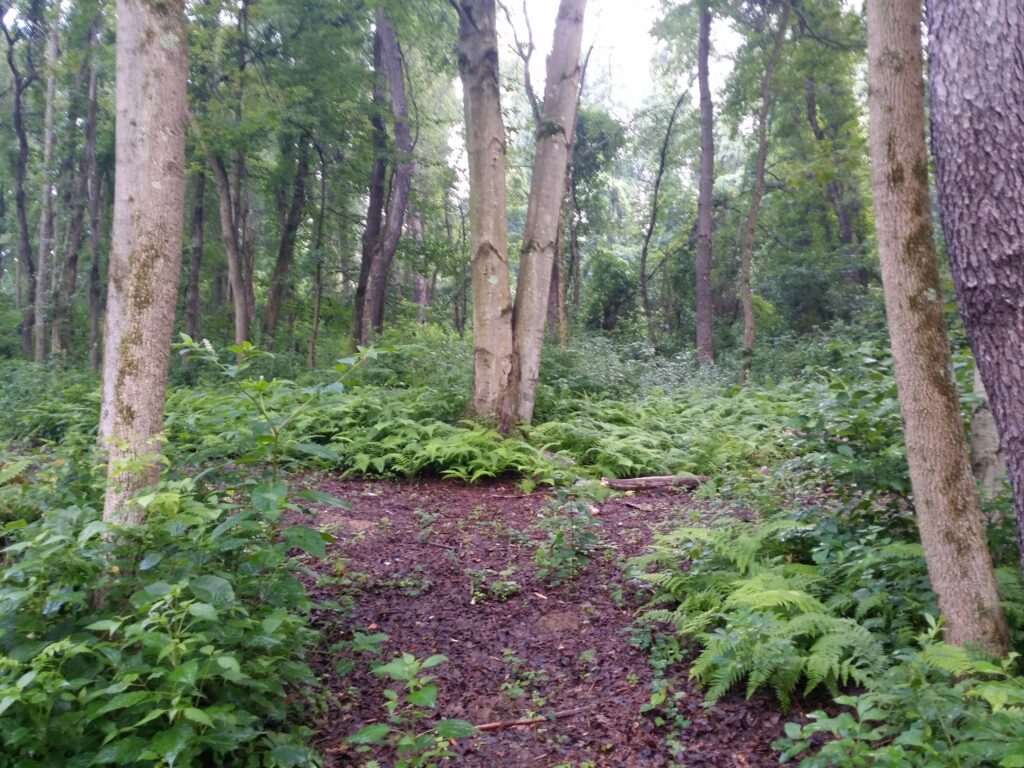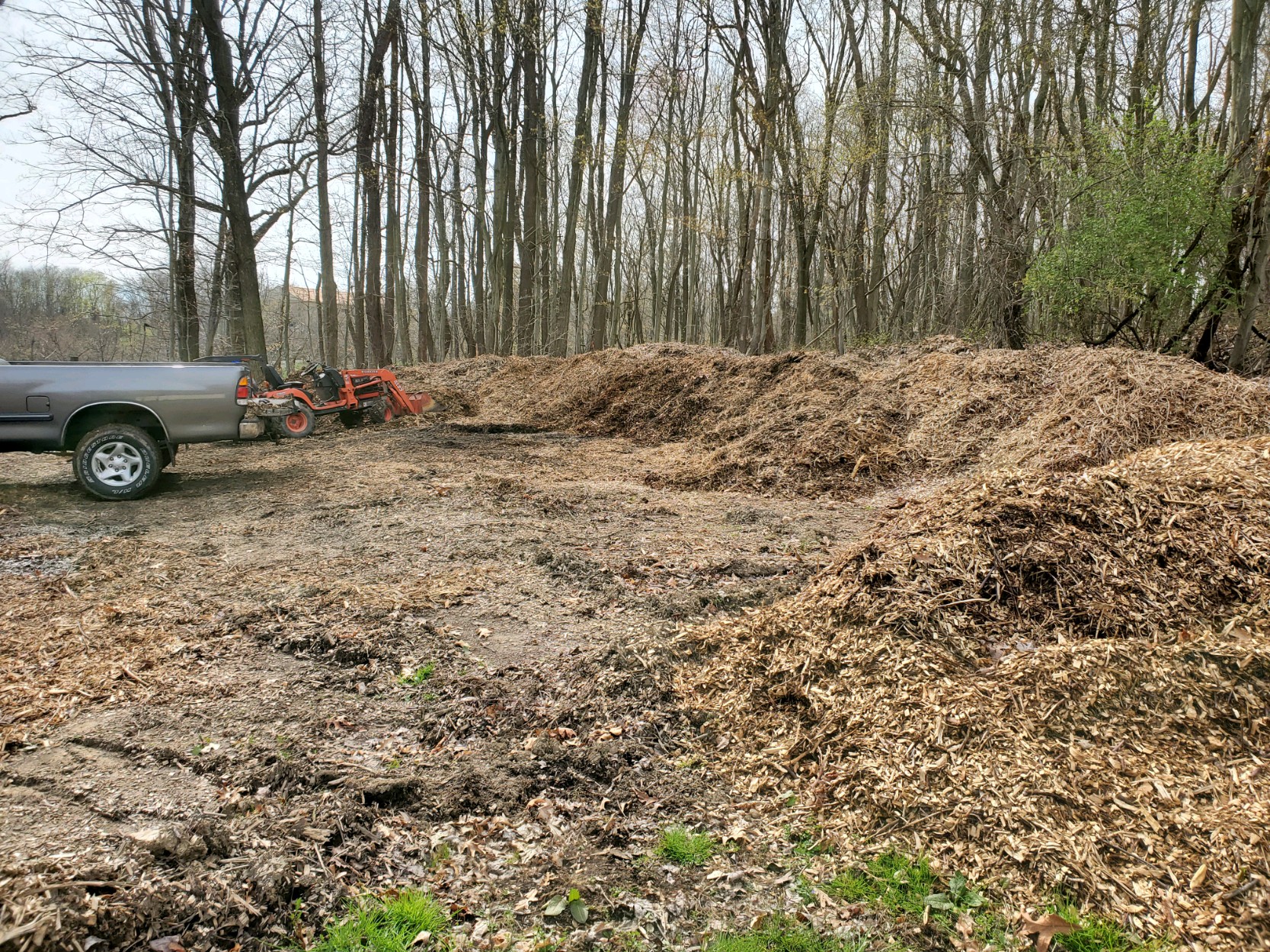
Woodchips Methodology
Why Woodchips?
Woodchips are not only instrumental in creating our farm’s namesake, they are indispensable in our growing process. They play multiple essential roles, beginning with the creation of nutrient-rich soil through a five-year decomposition process. Additionally, they aid in weed suppression when decomposed for three years and even contribute to the creation of soft, walking trails across our property (Something that this old guy with a bad back has grown to appreciate more and more as time goes on!).
Through the strategic use of woodchips, we cultivate highly nutritious soil that facilitates optimal growing conditions, ensuring moisture retention, efficient drainage, and robust root development for our crops.
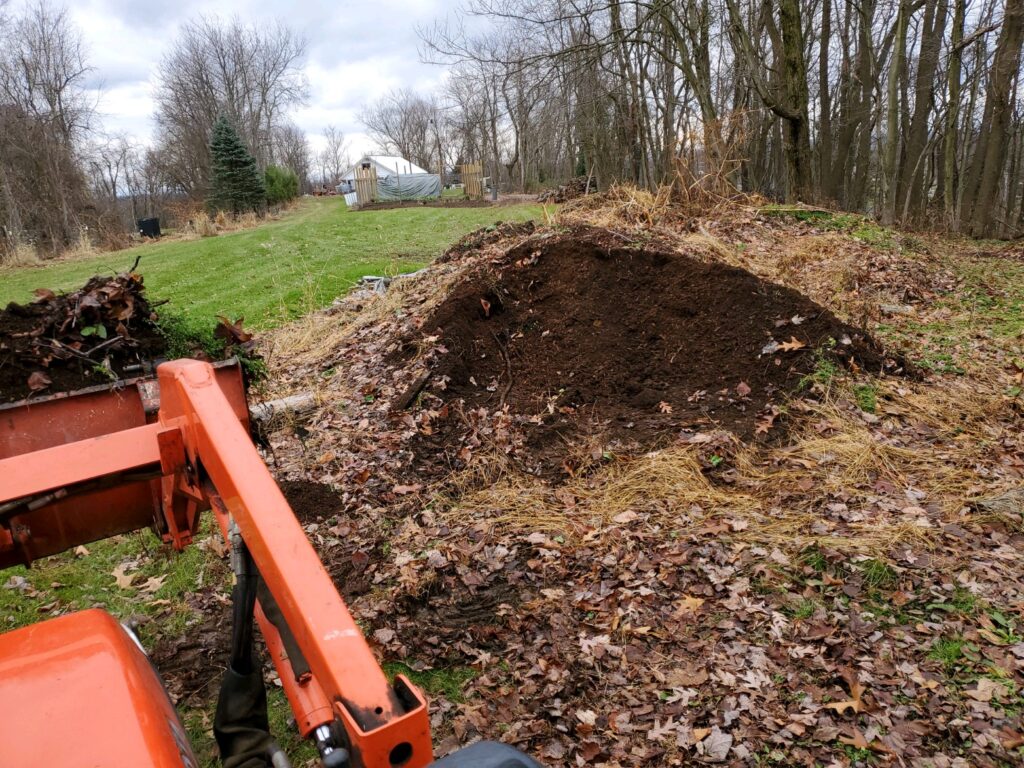
Ramial Chips: Nature’s Fast Track to Rich Soil
The process begins by breaking down branches into woodchips, allowing them to decompose gradually into nutrient-rich soil.
Derived from the most nutritious parts of branches, our woodchips offer a significant advantage over traditional materials. While dense tree trunks would take years to decompose, ramial chips expedite the process efficiently. During this decomposition, leaves are integrated, ensuring a balanced mixture of brown and green materials for effective composting.
During the five-year process of composting, the fungi or mycelium and earthworms help further break the woodchips into soil. This stage is very important to help transfer carbon, nitrogen, and other minerals as well as water into the vegetable root systems. Studies show that the root systems follow the mycelium threads.
Creating Ideal Soil, In and On Top
After the woodchips have decomposed, we meticulously remove all large chunks, utilizing only the finer woodchips to enrich the soil. After the wood chips have decomposed, we meticulously remove all large chunks, utilizing only the finer wood chips to enrich the soil. The result is wood chip-fortified soil that not only has enhanced nutrient content but also a better consistency. Its looser, less compact nature facilitates water retention, which in turn promotes water conservation. The aerated soil enables rapid and robust plant growth.
At Brokenwood Acres, we take pride in growing our own seedlings in a greenhouse using composted woodchips. When transplanting seedlings into our fields, we employ a protective layering technique involving cardboard and three-year-old composted woodchips, effectively suppressing weeds without resorting to harmful chemicals.
As part of our commitment to sustainable practices, we collaborate with Costco to obtain pallet slips made of ink-free, tape-free, and staple-free cardboard. These single-layered, glue free slips are placed beneath the woodchips, adhering to approved organic practices and minimizing environmental impact.
